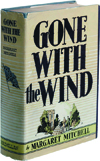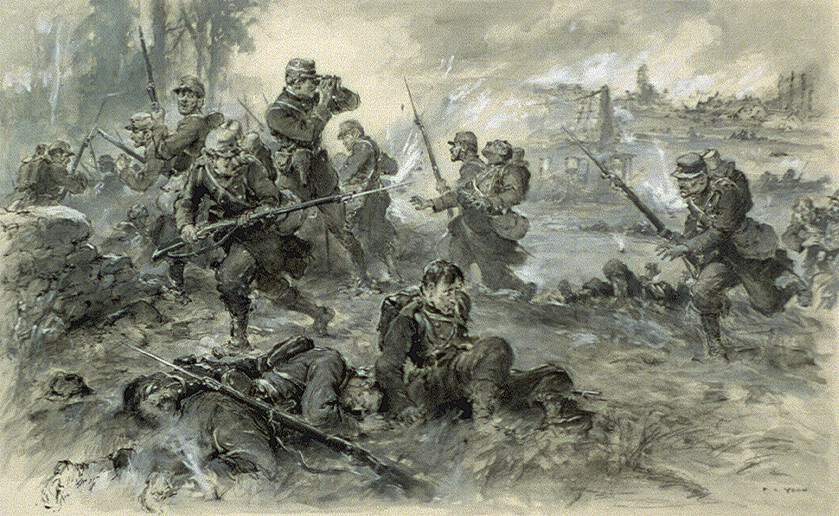It’s time to remember good Civil War lit—and close the door on the bad stuff 
Several months ago, literary critic Adam Kirsch—full disclosure: he’s my son-in-law—published an essay in the New York Times voicing concern about recent decisions to omit offensive, outdated sections of the Constitution when read aloud in the House of Representatives, and to censor sections of Mark Twain’s classic Huckleberry Finn to spare young readers from objectionable dialogue. Ellipsizing unpleasant history (and literature), he argued, often makes it too easy to forget it.
The essay called to mind for me the vast literature of the Civil War, some titles seldom read or long remembered, but in their own day often unimaginably popular and influential. Some classics continue to engage us, of course. But too many titles have been forgotten, while others undeservedly hover in our consciousness.
As the sesquicentennial unfolds, I wonder if it might not be a good time to exhume—or in some cases bury once and for all—the sometimes neglected bookshelf of Civil War fiction.
No better or more important example exists than Uncle Tom’s Cabin. Long before “Uncle Tom” became a euphemism for the subservient African American, the original novel captivated the nation.
Abolitionists greeted the novel as a call to action. Slaveholders branded it an invitation to insurrection and race war. Historians rank it, along with John Brown’s Raid and the Dred Scott decision, among the defining events triggering secession.
Abraham Lincoln agreed, though there is no evidence he read the novel himself. He did borrow the book of sources its author published later to defend herself against critics who charged she had invented the whole thing. And meeting her for the first time in late 1862, Lincoln allegedly asked Harriet Beecher Stowe, “Is this the little woman who made this great war?”
We may cringe today at its dated and offensive dialect, cornball melodrama and the notion of its hero as a grateful slave. But there can be no denying its original power. Uncle Tom’s Cabin was one of the biggest best-sellers of the 19th century. To shun it today because it seems antique and retrograde is to ignore one of the most powerful literary phenomena of American history—and to deny its author the credit she deserves as an ultimately triumphant reformer.
One of my own guilty-pleasure favorites is an obscure title by none other than Edmund Ruffin, the fire-eater who claimed the honor of launching the first Confederate shell against Fort Sumter in 1861. Ruffin was also a visionary novelist with a surprising knack for Jules Verne–like prognostication.
Early in 1860, Ruffin published an uncanny book of speculative fiction titled Anticipations of the Future. It boldly and, it turned out, accurately predicted that “the obscure and coarse Lincoln” would be elected president “by the sectional Abolition Party of the North,” entirely justifying resistance by Southerners to “oppression and impending subjugation,” and igniting a fight for Southern “independence.”
The only detail Ruffin got wrong in his otherwise astonishing (if inflammatory) book was timing. He predicted that a Lincoln presidency and Civil War would occur four years later than it did. Nonetheless, a century and a half later, the novel is still a bizarre marvel.
On the other hand, some books deserve to be forgotten, including, in my admittedly minority opinion, the so-called classic Gone With the Wind—complete with its benevolent master–grateful slave paradigm. Has anyone really read it cover to cover lately? That Margaret Mitchell’s romance continues to hold sway over public opinion is of course undeniable—but surely this is due chiefly to the endless television reruns of the classic 1939 movie.
Unfortunately, these revivals invite eternal admiration for skeptical Rebel Rhett, sympathy for sweet Melanie and perhaps the guilty secret belief among whites that every household deserves a servant like Mammy. GWTW can almost make slave-dependent aristocracy look noble, even though Mitchell at least had the decency to show it crumbling.
Isn’t this notion more dangerous to young readers than the “n” word in Huck Finn? Perhaps no reader should be sentenced to reading GWTW—or even sitting through the film again—without parental warning, or at least scholarly intervention of the kind the History channel used to provide so usefully during weekend screenings of “historical” movies.
More recent best-sellers can prove equally absurd, of course. To me, Gore Vidal’s Lincoln (the author’s name perennially above the title like “Alfred Hitchcock’s Psycho”) is ridiculous and pretentious to boot, arguing smugly that Lincoln was more a constipated, conspiratorial dictator than a visionary emancipator. Does not a genuine character, even in fiction, lie somewhere in between such simplification? (But all hail Sam Waterston in the mini-series adaptation.)
Tastes vary. I continue inexplicably to be a sucker for Mackinlay Kantor’s If the South Had Won the Civil War, and an admittedly silly assassination fiction by Barbara and Dwight Seward called The Lincoln Diddle (Mary did it!).
I admire Charles Frazier’s writing immensely, though I found Cold Mountain ultimately too much of a good thing, and resent it for creating the new mythology of a lawless Civil War South where state militias wreaked violent havoc on neighbors.
Fiction usually dies harder than fact. I still meet people who believe every frame of the ahistorical Gangs of New York. But I carp no further, because Civil War fiction is in peril of vanishing too fast and too soon, though generous fans like novelist Jeff Shaara encourage it by endowing out an annual prize for the best new works.
Even so, let’s not forget the true classics. While some of the best 19th-century books may suffer from the cringe factor, they may be far worthier of a second read than politically correct pap.
Yes, some of the older works may upset modern sensibilities, but they continue to demand attention. The realities they describe so vividly and so painfully ought to be remembered, not forgotten. That’s what Adam maintained in his essay, and that’s what I hope Adam’s (and Remy’s) son (my grandson) will come to appreciate once he outgrows Richard Scarry’s Busytown books.
Harold Holzer’s newest books are Lincoln on War, Hearts Touched By Fire: The Best of Battles and Leaders of the Civil War and, for young readers, Father Abraham: Lincoln and His Sons.
*This post contains affiliate links. If you buy something through our site, we might earn a commission.





